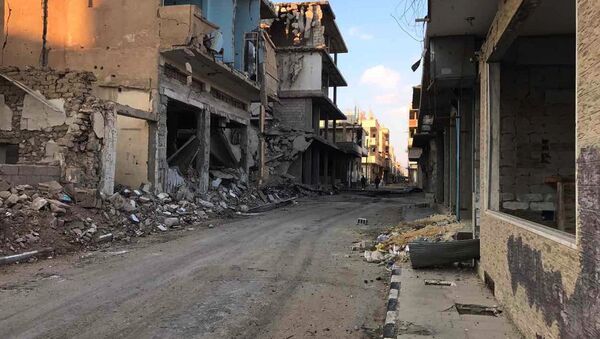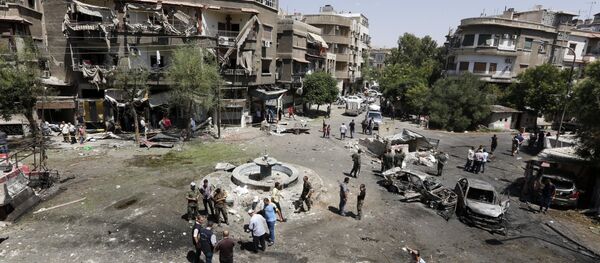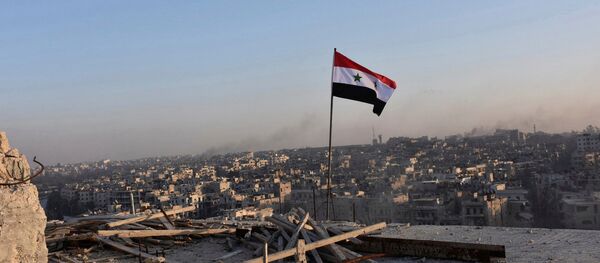On July 31, representatives of the Russian Defense Ministry and moderate Syrian opposition reached an agreement on the establishment of a third de-escalation zone in Syria during their meeting in Cairo, Russian Defense Ministry spokesman Maj. Gen. Igor Konashenkov said Thursday.
The spokesman added that 84 settlements with a population of more than 147,000 people were included in the zone.
"The reached agreements enable a search for a real political solution to the conflict. It is clear that the moderate opposition's attitude toward the legitimate central government is not very stable. The most important thing, however, is that there is no division of Syria in sight and that the country will retain its unity," Sokolov told Sputnik.
According to the analyst, the process of de-escalation of the Syrian conflict is embracing new regions and thus bringing closer the end to the civil war and peace in the country.
"From my point of view, the process that has begun — and successfully continues — can be quite productive. This is the success of our diplomacy and Russia's actions in Syria in general," the expert concluded.
According to Konashenkov, the Committee of National Justice, including representatives of opposition and major ethnic, political and religious groups, will be set up in the Homs de-escalation zone to ensure its effectiveness.
Konashenkov stressed that the cease-fire regime in the Homs zone, as in the other two zones, did not cover the militants of Jabhat Fatah al Sham, formerly known as al-Nusra Front and Daesh.
On July 24, Col. Gen. Sergei Rudskoi, the chief of the Russian General Staff's Main Operational Directorate, said that the borders of the de-escalation zones north of the Syrian city of Homs and in the eastern Ghouta region were agreed upon during the fifth round of international meetings in Astana in early July, while consultations on another zone in Idlib province have continued.
Russia, Turkey and Iran, as well as Syrian government representatives and the country's opposition, participate in the negotiation process in Astana. The United States, Jordan and the United Nations act as observers.




